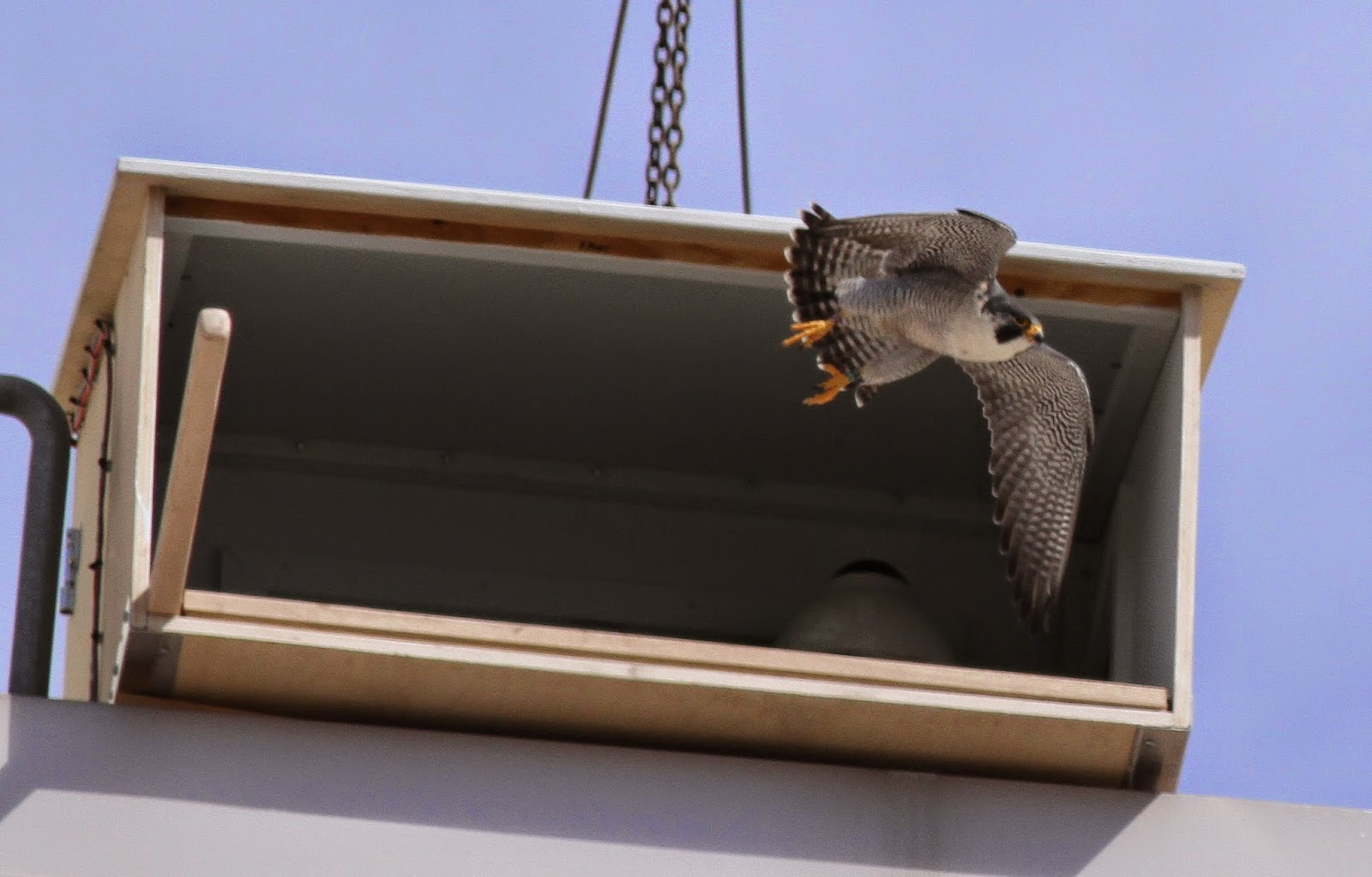The Latin word for the Peregrine is "peregrinus" which means "wanderer," no doubt because the Peregrine is found worldwide except in Antarctica. Another name for the Peregrine is "Duck Hawk."
The Peregrine is about the size of a crow, weighs around 2 lbs. and has a wing span of 3 1/2 ft. As with most predator birds, the female is larger. The most distinctive features of the Peregrine are its yellow eye-rings and yellow legs.
The Peregrine photos shown here were taken recently at the nesting box located atop the power plant in Port Washington, WI on the southeast side of the building. It can easily be seen from the parking lot located on the south side of the plant.

Note the bands on the legs of the bird in the photo above. Some research last year concluded that the Peregrines using this nesting box were originally tagged in Indiana.
When the Peregrine dives to catch its prey (birds, bats, ducks) it can reach a speed of 200 mph and is considered the fastest bird in the world.
I was lucky to photograph one of the Peregrines returning from a hunt with a small bird in its talons.
From the looks of it, their dinner didn't fare well.
Looks like the female took the lion's share and
ran away.
Sexually explicit photo of bird sex follows. Send the kids to their rooms.
Take my word for it...the above photo depicts our two birds having sex. They hid their passion well behind that pulley. Unfortunately, I wasn't able to get the shot of them sharing a cigarette afterwards.
In the mid 20th century, the Peregrine was almost eradicated because of the prevalence of DDT but it has made a steady comeback since the pesticide was banned. Wisconsin is lucky to have this nesting box and others elsewhere in the state. Look for it the next time you visit Port Washington.







